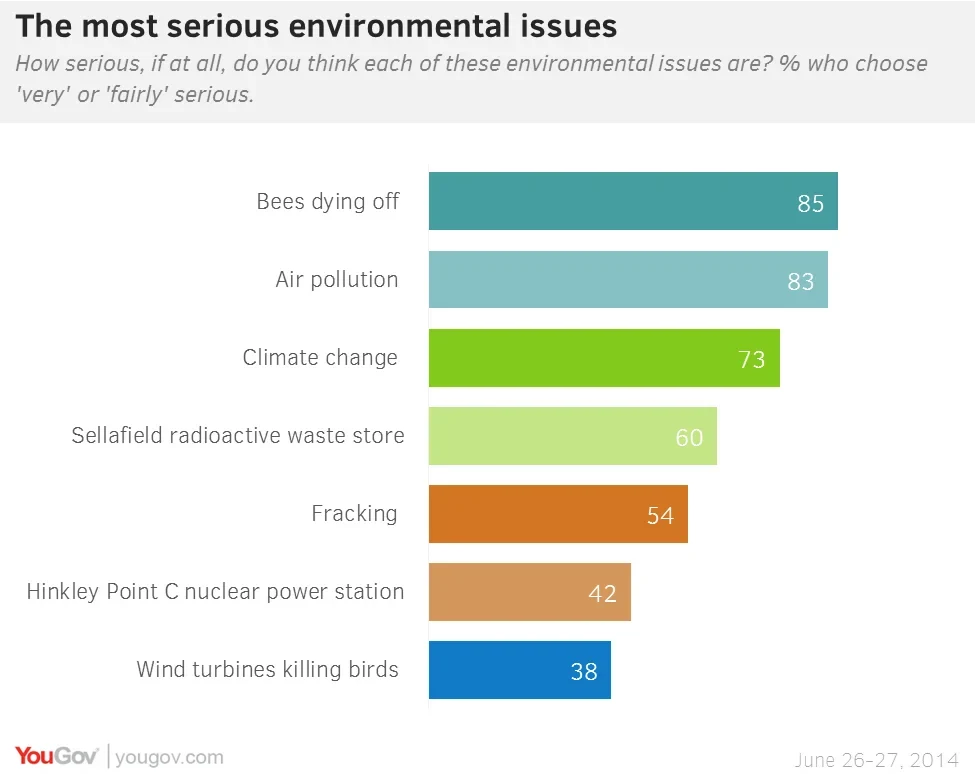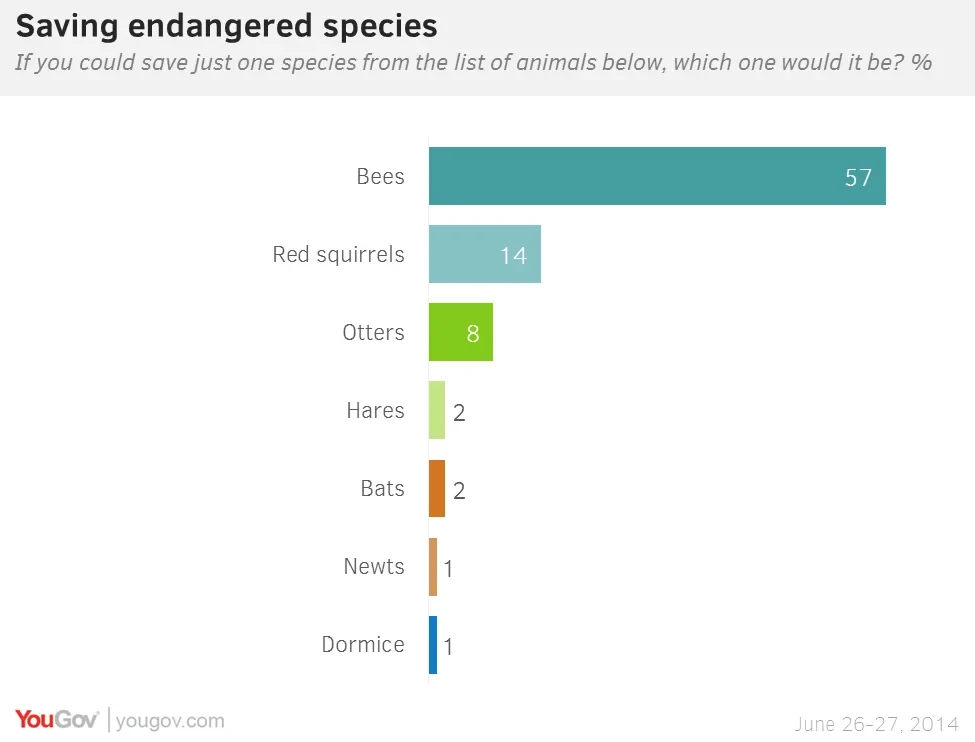British people consider the decline in bee numbers to be the most serious environmental issue – more than climate change - and bees are the one endangered species most people would save
The continual decline in bee numbers, which in England have almost halved in the past 25 years, poses a serious threat to the countryside and food security, with a third of what we eat being reliant on bees for pollination. Many believe a main cause of the decline is pesticides, and Barack Obama has even outlined plans to create a new task force to investigate their effects on bees and other vital pollinators.
A new YouGov survey finds that the decline in bee numbers, known as “Colony Collapse Disorder”, is seen as the most serious environmental issue, and one that concerns the whole political spectrum.
Even though the phenomenon is barely noticeable in daily life, by 85-7% British people see bees dying as serious. In contrast, air pollution is seen as serious by 83-10%. And climate change, the subject of international research projects and vast government spending, is seen as the third most serious issue, by 73-20%.

Part of the reason for the high ranking of Colony Collapse Disorder is its ability to cross the party ranks, with over 86% of supporters of all the main parties describing it as serious. In contrast, climate change is more politically charged, with 66% of Conservatives calling it serious compared to 85% of Labour voters. That said, even among political factions the decline of bees ranks highly: while 88% of Labour voters think it is serious, fewer (85%) say climate change is a concern.
Additionally, from a list of seven well known endangered British species, bees are by far given the highest priority. 57% say they would save bees if they could save just one species, compared to only 14% who would save red squirrels.

Scientists blame the virus-spreading varroa mite and one of the most widely used pesticides in the world, nenicotinoids, for Colony Collapse Disorder, and have begun attaching tracking devices to bees to monitor their effects on flight paths. Other, less orthodox causes have also been blamed: scientists in India claim that interference from mobile phone signals is disrupting bees’ navigation senses, lowering the number of eggs laid by the queen bee.
Image: Getty






